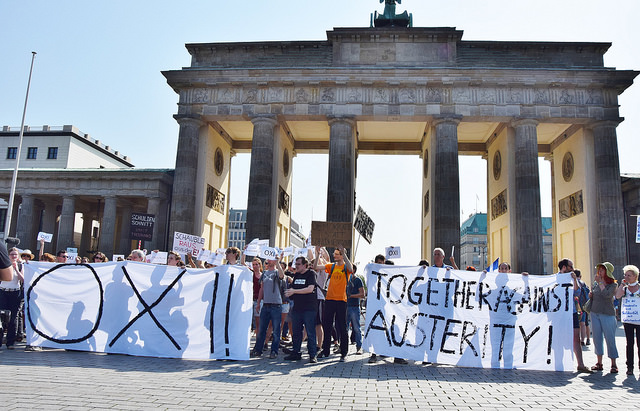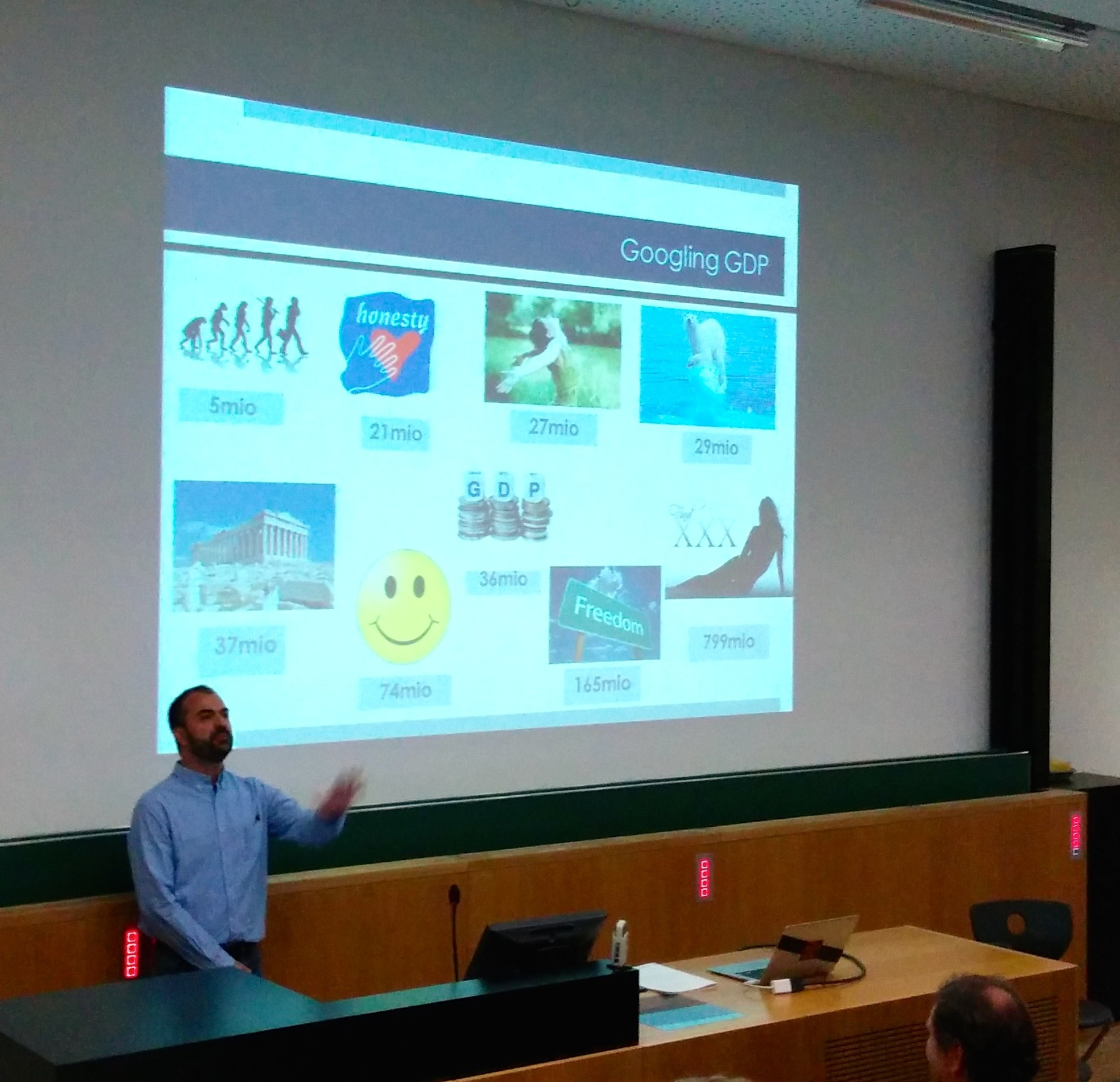Recently, an article on degrowth appeared in Harvard Business Review (hereafter HBR). Rather than offering a critique of capitalism, the article proposes that degrowth may not be a threat to business after all, and in fact, there are burgeoning degrowth markets waiting to be tapped into by the risk averse. Although we applaud the authors in getting the word “degrowth” into the illustrious pages of HBR, we take serious issue with the all too familiar ways in which this word and its radical connotations have been stretched. Humanity and nature are in states of severe social and ecological degradation, provoked and facilitated by capitalism and its obsession with accumulation and growth. Scientific evidence and observations thus increasingly demand a radical change in our current way of life. As Samuel Alexander recently argued, this must necessarily entail “transcending capitalism” and its inherent growth compulsion. Degrowth proposes a vision of what such change may mean and places itself in fundamental opposition to the dominant political-economic system. As a movement and academic paradigm, degrowth is a daring and adventurous exploration of alternative ends, values, practices, and structures. Business-friendly degrowth? HBR, therefore, does seem an unlikely place to find degrowth related insights. It remains largely in line with neoliberal principles and cheerful of business impact, underestimating the damages mainstream micro-economics as well as business, and studies thereof, pose for sustaining life on Earth. True to form, the article thus proposes a business-friendly and market-oriented picture of degrowth, one that seeks to domesticate a concept that we believe should not be domesticated. At the core of the article is a business-as-usual desire to exploit new markets, or merely tweak business by improving supply chains and thinking about sustainable product design and recycling. In doing so, the article entirely disregards the fact that businesses underlie the microeconomic dynamic of capital accumulation within capitalist modes of production. In order to sustain themselves within a capitalist system, businesses need to adhere to this logic, which generates surplus from the transformation of nature and a utilitarian approach to human input. Not just adhering to the system, businesses as agents of growth actively reproduce the structures that generate the drive for capital accumulation. We argue that society does not need another reformation of business which maintains its basic managerial convictions, as with previous models of corporate social responsibility, business ethics, sustainable business strategies or social entrepreneurship. What degrowth is calling for instead is a fundamental transformation of social organisation, economic practices, production and value creation in general. Considering the accelerating pace of environmental degradation, such transformation of businesses will necessarily need to be so radical that businesses as we know them will cease to be businesses, and will need to become alternative economic organisations compatible with degrowth. Degrowth de-radicalised The first paragraph of the HBR article highlights the radical, “anti-capitalist and anti-consumerist” roots of degrowth. However, these are not only roots, but fundamental principles of degrowth. Additionally, degrowth is anti-producerist and strictly against the economisation of social life. In other words, degrowth deviates not only from capitalism and consumerism, but also from production for the sake of production, and from viewing economic activity as an end in itself. After a short weighing up of arguments for and against degrowth, the HBR authors follow a positively tempered statement that degrowth “opens [up] new opportunities” for companies that embrace it, who will be able to “handily outmanoeuvre their competitors”. Moreover, the authors perceive that consumer-driven degrowth has already started to “reshuffle competitive dynamics within and across industries” and is thus offering “new bases for competitive advantage”. This conflation of business opportunity and competitive advantage with radical ideas of degrowth is highly problematic. It follows a similar narrative to de-radicalised concepts aiming at the greening of capitalism, all of which come with a business case, the prospect of win-win outcomes, an army of consultants, certification schemes and similar HBR articles. Similarly, competition is not and can never be part of degrowth, as it is a fundamental dynamic of the capitalist market economy which fuels growth. Companies compete in a market economy by using price related tactics (e.g. cutting costs by producing in countries with low environmental or labour regulations), and marketing (e.g. claiming that a product will make someone happier, more confident, more attractive). What the HBR authors appear to be saying is that business leaders need to be clever and utilize the brand awareness opportunities made possible by aligning parts of their business with the degrowth discourse. The authors of the HBR article also mention Andre Gorz, who points out that everything which happens in a capitalist system happens for the valorisation of capital. In other words, an increase in the value of capital is always pursued. Ultimately, this is what businesses are there for, it is the logic according to which they operate. Even if profit-maximisation is not the sole goal of a particular business, profit-seeking and profit-making always dominate. Infamously described by Friedman’s neoliberal doctrine which has shaped the global capitalist economy, “the social responsibility” and very purpose of businesses “is to increase its profits”. Production is thus carried out by businesses for profit, even if some businesses allegedly try to balance this with people and planet. Indeed, as the HBR authors note, for business leaders, degrowth is currently unthinkable. The moment degrowth becomes ‘thinkable’ as a business case in line with capitalist logic, the degrowth movement should begin to worry. Degrowth should scare business It should be acknowledged that an economic organisation which is truly aligned with degrowth’s anti accumulation foundation will most likely not be able to survive in the current economic system based on competition and the imperative of capital accumulation. Thus, a much broader societal transformation beyond capitalism is needed. A degrowth society requires a different foundation which signifies cooperation, care, concern, sharing, responsibility, and solidarity. It means valuing people and nature beyond their productive capacities. Erich Fromm points out that “progress can only occur when changes are made simultaneously in the economic, socio-political and cultural spheres”. Thus, when addressing the microeconomic level, degrowth should never lose sight of its roots, principles, aims and a deep understanding of the interconnection between various societal systems. Cultural transformation in particular needs to identify the mental infrastructures of growth ingrained in our societies, in order to imagine a different future. The HBR article is a case in point of how deeply rooted these mental infrastructures are within business and management academia. Seeing degrowth being (mis)used by the mainstream is not a sign of progress. It is in fact the capitalist hegemony trying to undermine a counter-hegemony that could genuinely challenge it. Degrowth should - and must - scare businesses. Taking degrowth seriously means the end of business as we know it. It means the end of capital accumulation, profit seeking, making and maximisation, competition, wants creation, marketing and advertising, exploitation of people, nature and non-humans, and the end of growth for its own sake. Thus, relating back to its origins as a missile slogan, it is crucial that degrowth remains a vision for a radically different, better world. However, while degrowth should scare business, degrowth should not scare people involved in business. After all, businesses are social entities, i.e. communities of people, and people need degrowth far more than growth, considering the ecological and social degradation that is currently unfolding. It should thus be our desire, and it is in our capacity, to organise better than holding on to capitalist logic.

Growth-critical authors and advocates of a post-growth society are often criticized on the grounds that some of their arguments appear open to appropriation by authoritarian nationalist and nativist racist forces. As such objections are often made in a polemical and overly generalised manner, often ultimately aiming to delegitimize growth-critical ideas as a whole, those being criticised often ...

By Nina Treu According to recent calculations by the Macroeconomic Policy Institute the Euro-crisis has cost Greece almost a quarter of its GDP. This is the biggest ever recorded contraction of an economy in times of peace. It would be cynical to consider this an example for degrowth (or postgrowth) in Europe. This is certainly not the case. On the contrary, the mission statement of the degrow...

By Chris Ward Growth is always a goal in many countries, statistics appear everywhere and it’s always discussed. Even small reductions in GDP are met with bitter disappointment; it’s become one of the most important measures in the modern era. And yet there are surprisingly few discussions or resources on when and why this did happen. The special session on degrowth and history sheds some ligh...